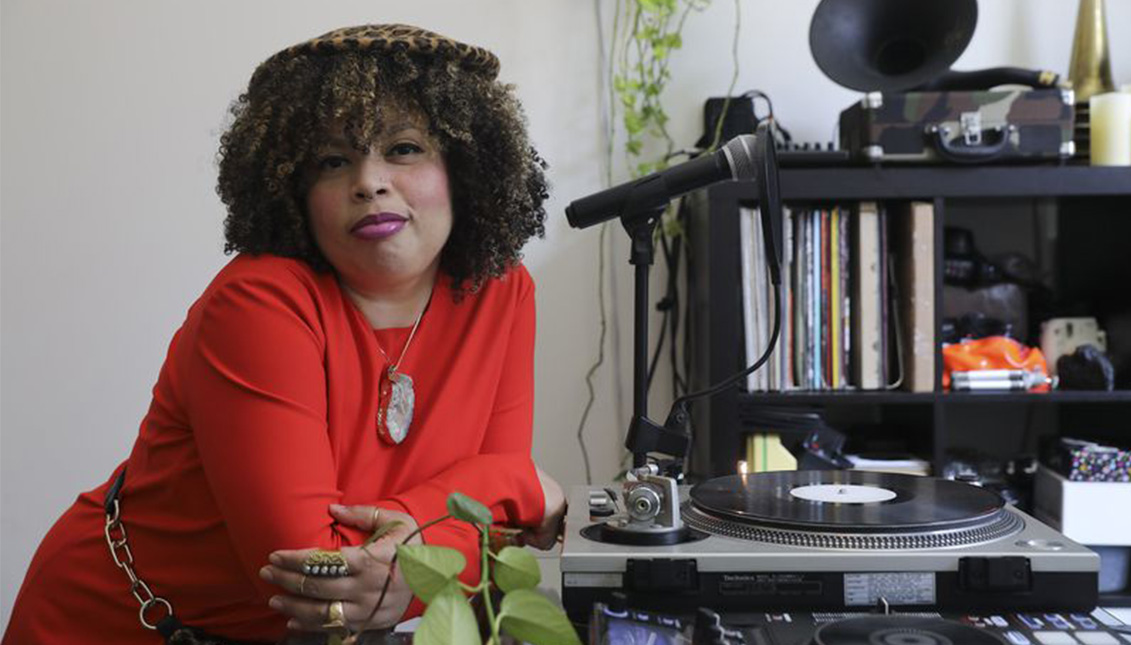
How does a protest sound? The DJ who turns the civil rights struggle into music
Speeches, revolutionary slogans and radical Black music are part of 'It Was a Rebellion,' the latest and unique project of singer-songwriter Sadie Woods.
Martin Luther King said that "a riot is the language of the unheard." But for African-American DJ Sadie Woods, protests are not the only way Black people have fought oppression, "we've also used music," she says.
In her latest sound project, It Was a Rebellion, released last June, the Chicago artist mixes the sounds of historic Black rights marches and speeches like those of Dr. Marin Luther King Jr., which have touched generations, with radical Black music to draw a soundscape of the struggle for freedom. A landscape where history is told by its protagonists.
"What I've found is that the media and the history of popular culture has created a certain point of view that doesn't necessarily honor and tell a story about a community of people without letting the community of people tell the story itself. In that way, it colors the experience and also, in a way, rewrites history," Woods told the Chicago Tribune.
The project had been in her head for a couple of years; she had done a lot of research, read, watched videos and, most of all, listened to music. Until finally, she was able to present it in a rather surprising way.
The first live performance of It Was a Rebellion was on a pirate radio broadcast from Nichols Tower. Later, Woods continued to work and take the piece, which was growing steadily, to different radio stations and art galleries.
When the COVID-19 pandemic began to take its toll on the country and the BLM uprisings spread to the rest of the world, Woods realized that it wasn't enough to just generate the symphony of protest, she had to take it to the streets.
"I felt it was better to have the play in the public rather than in these more sanctioned spaces like gallery spaces, which only provide access to certain people, not everyone," the DJ added.
RELATED CONTENT
Woods has created three versions of the tape: one for the radio, one home-made, and a third uncensored one, where tracks from Marlena Shaw or Donny Hathaway are interspersed with clips of speeches like the one made by Black Power leader H. Rap Brown about white nationalism, or Dr. King's speech in The Other America, when asked:
"A riot is the language of the unheard. And what is it America has failed to hear?"
But It was a Rebellion is not a sound archive of the past but, as its author states, a "conversation between different generations" and at the same time a powerful and emotional bridge between the past and present. Between the music that influenced a movement and the influence of these historical protests not only on the music but on us, on the Black Lives Matter Movement.
That's why, says Woods, genres such as hip-hop, funk and house were not only the evolution of previous genres, they were also a response to the world in which their creators lived.
"To me, it's an affirmation or a reaffirmation of humanity itself. And also recognizing that these struggles are real and have happened before and that it takes a community to get through these moments," the artist concluded.











LEAVE A COMMENT: